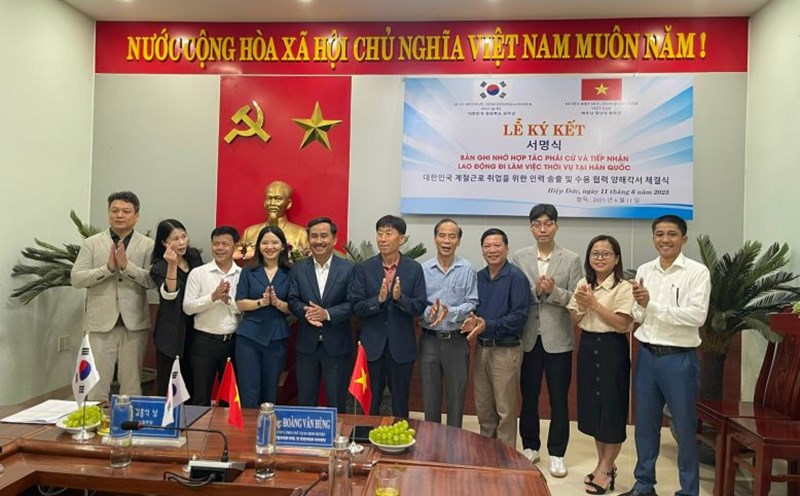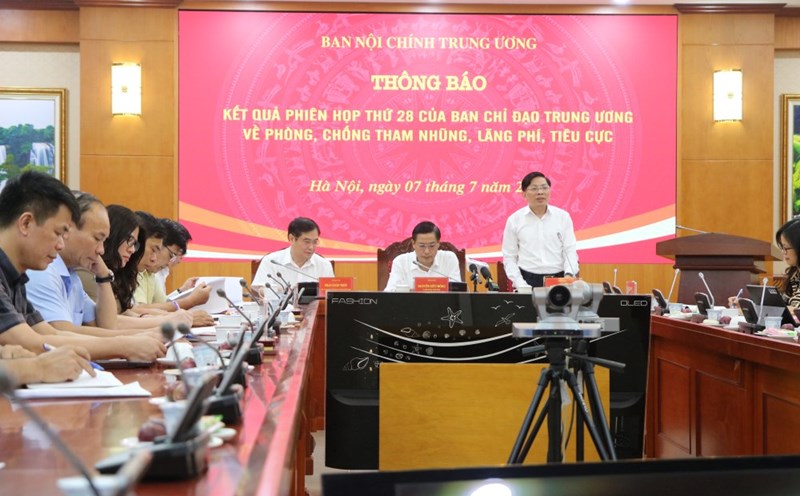Promoting decentralization and delegation of power to localities
Speaking with Lao Dong reporter, Deputy Minister of Home Affairs Nguyen Van Hoi said that immediately after the recent violation related to the labor export sector, the Ministry of Home Affairs held a meeting with the Department of Overseas Labor Management and related units to strictly rectify.
In particular, eliminate "sub-licenses", improve the quality of service for people and businesses; develop and expand the market as well as ensure the best service for workers; require units to promote decentralization and delegation of authority to provinces and cities for implementation.
In the near future, we will even propose amending laws and some decrees related to labor export activities - Deputy Minister Nguyen Van Hoi said and added, continuing to request reform of procedures, simplify businesses, create an open environment; amend policy mechanisms, improve capacity, ethics, and service integrity.
Deputy Minister Nguyen Van Hoi also requested each cadre to improve ethics and public service responsibility, organize and implement tasks well at each position, effectively but without making mistakes; reform administrative procedures to ensure speed, strictness, compliance with regulations and not abuse to provide maximum support for businesses and workers.
Removing barriers to labor export
A representative of the Department of Overseas Labor Management (Ministry of Home Affairs) said that one of the notable points in the new administrative procedures related to the field of sending workers to work abroad is decentralization and delegation of authority to localities.
Decree 128 of the Government regulating decentralization and delegation of authority in State management of the internal affairs sector, effective from July 1, stipulates many new points in state management of Vietnamese workers working abroad under contracts.
In particular, a notable change is the decentralization of some administrative procedures related to the management of workers working abroad to the provincial People's Committees as detailed in Articles 10 and 11 of Decree 128 instead of being completely dependent on central agencies as before.
The Provincial People's Committee receives and issues documents approving the preparation of labor resources for service enterprises; responds to reports on successful bidding and investment abroad; receives and replies in writing to enterprises that register to send Vietnamese workers to train and improve their qualifications and vocational skills abroad for a period of 90 days or more.
Issued a document approving the registration of service activities for sending Vietnamese workers to work as domestic helpers abroad; confirmed the list of Vietnamese workers to work as domestic helpers abroad. Previously, these procedures belonged to the Department of Overseas Labor Management.
According to Clause 2, Article 10 of Decree 128, the People's Committee of the commune where the employee resides is responsible for documentally confirming the registration of labor contracts of the employee working abroad under the contract.
The order and procedures are clearly specified in Section 3, Appendix II attached to the Decree: Employees submit documents to register for labor contracts; The People's Committee at the commune level confirms within 5 working days from the date of receiving a complete and valid document. At the same time, report to the Provincial People's Committee and the Ministry of Home Affairs; in case of non-confirmation, the reason must be clearly stated. Compared to before, according to the Law on Vietnamese Workers Working abroad under contracts and Decree 112/2021, this task is carried out by provincial or central agencies.
In the first 6 months of 2025, the total number of Vietnamese workers working abroad under contracts reached 74,691, reaching 57.4% of the annual plan. In 2025, the goal is to send 130,000 workers to work abroad under contracts.
In the first half of 2025, Japan is the largest market receiving Vietnamese workers, with 35,240 workers, followed by Taiwan (China) with 28,206 workers, and South Korea with 5,650 workers.
In addition, China has received 1,478 workers, Singapore 1,100 workers, Rumani 400 workers, Hungary 572 workers and other markets, showing that new markets continue to record positive results.
In June alone, the whole country had 13,060 workers working abroad under contracts. The main labor receiving markets include Japan with 5,338 workers, Taiwan (China) with 6,074 workers, and South Korea with 673 workers.
Some other markets also continue to record a stable number of arrivals, such as China with 236 workers, Singapore with 248 workers, Rumani with 83 workers...












